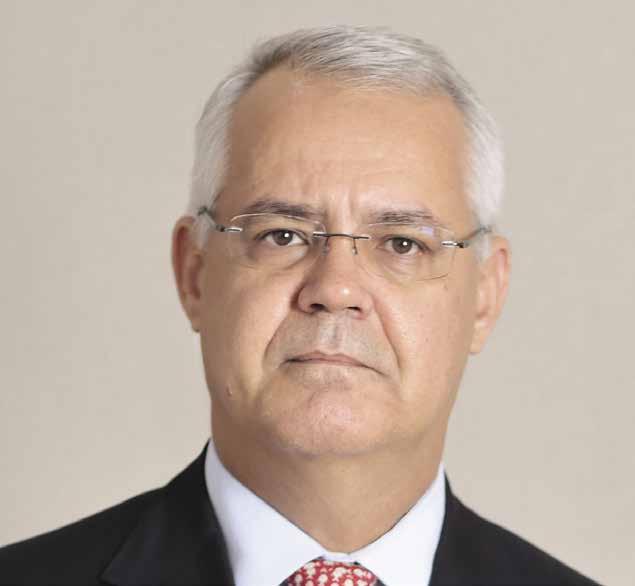OPINIÃO
PAULO SANDE, PROFESSOR CONVIDADO DO INSTITUTO DE ESTUDOS POLÍTICOS DA UNIVERSIDADE CATÓLICA PORTUGUESA VISITING PROFESSOR AT THE INSTITUTE FOR POLITICAL STUDIES AT THE PORTUGUESE CATHOLIC UNIVERSIT Y
O NACIONALISMO VACINAL E A
ESPERANÇA EUROPEIA
VA C C I N E N AT I O N A L I S M A N D E U R O P E A N H O P E
Tempos de incerteza, novas formas de vida São inúmeros os planos em que a pandemia causada pela COVID-19 nos obriga a repensar velhos padrões, hábitos antigos, formas de funcionar, provocando interrogações e dúvidas suficientes para os próximos, muitos, anos. Como organizarão as empresas o trabalho dos seus colaboradores? Os sistemas de saúde desenvolverão uma dimensão preventiva que impeça, em novos (inevitáveis) surtos pandémicos no futuro, o tipo de rutura a que assistimos no último ano? Vamos viver em cidades cada vez mais multicêntricas? E as relações humanas, no rescaldo dos confinamentos, alguma vez voltarão a ser, como foram, empáticas, o beijo e o abraço regressarão (pelo menos nos países latinos) como forma de expressão comum, corriqueira, simples e poderosa, da saudação, da amizade e do amor? Entre os já muitos estudos, inquéritos, artigos e livros sobre o “futuro pós-pandémico”, recordo um pequeno texto publicado no site do Science News em dezembro do ano passado1, de que retiro algumas frases dos testemunhos ali vertidos (todos de norte-americanos) e que ilustram a incerteza e os riscos associados aos tempos que vivemos: Um historiador, John Barry, professor universitário, escreve que “Se o vírus permanecer uma ameaça, as mudanças podem ser profundas, tudo derivando de uma de-densificação (se a palavra existe) da vida em geral. Esta tendência afetaria onde e como as pessoas vivem e trabalham, o mercado da habitação, as práticas imobiliárias e o design interior dos edifícios”. Katherine Hirschfeld, médica antropologista, considera provável 22
Times of uncertainty, new forms of life There are countless aspects related to the pandemic caused by COVID-19 that force us to rethink old patterns, old habits, the way we operate, raising enough questions and doubts for the next, many, years. How are companies going to organise the work of their employees? Will healthcare systems be able to develop a preventive dimension that will stop, in new (inevitable) pandemic outbreaks in the future, the type of disruption witnessed in the past year from occurring? Are we going to live in increasingly multicentre cities? And human relations, in the aftermath of lockdowns, will they be as they were, empathic? Will kissing and embracing return (at least in Latin countries) as a common, ordinary, simple and powerful form of expression of greeting or expressing friendship and love? Among the myriad of existing studies, surveys, articles and books on the “post-pandemic future”, I recall a short text published on the Science News website in December last year1, of which I would like to give you an excerpt, sentences from testimonies contained there (all by north-Americans) that show the uncertainty and risks associated with the times we live in: One historian, John Barry, a university professor, writes that “If the virus remains a threat, the changes can be profound as a result of de-densification (if there is such word) of life in general. This trend would affect where and how people live and work, the housing market, real estate practices and the interior design of buildings”. Katherine Hirschfeld, a medical anthropologist, considers the (Texto escrito ao abrigo do novo acordo ortográfico)



















